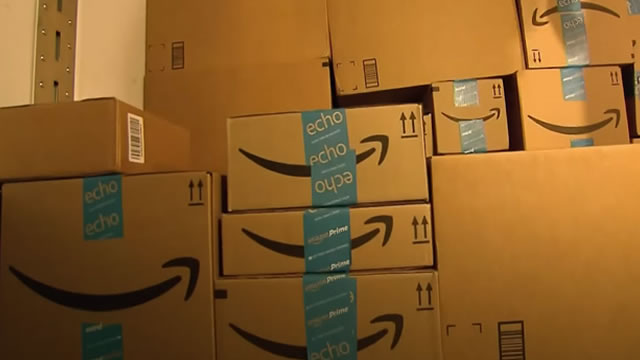Amazon’s Project Kuiper: A New Player in the Satellite Internet Game
On Wednesday, Amazon made an exciting announcement. The tech giant revealed its plans to launch the first 27 satellites for its Project Kuiper this month. This marks a significant milestone for the budding constellation, which is poised to become a formidable competitor to Elon Musk’s Starlink system.
What is Project Kuiper?
Project Kuiper is Amazon’s initiative to develop a global satellite network aimed at providing low-latency, high-speed broadband internet coverage to unserved and underserved communities around the world. The constellation aims to consist of over 3,200 satellites, which will be placed in low Earth orbit.
A Long-Awaited Moment
Amazon’s announcement comes after several years of planning and development. The company first announced its intentions to build a satellite internet network in 2019. Since then, the project has faced several delays and challenges. However, with the launch of the first 27 satellites, the project is finally taking shape.
A Challenge to Starlink
Amazon’s Project Kuiper will pose the biggest challenge yet to Elon Musk’s Starlink system. Starlink, which is operated by SpaceX, currently has over 1,700 satellites in orbit, with plans to expand to over 12,000 satellites. Amazon’s larger constellation will provide more extensive coverage and potentially offer more competitive pricing.
Impact on Consumers
For consumers, the entry of Amazon into the satellite internet market could mean more competition and potentially lower prices. With both Amazon and SpaceX offering satellite internet services, consumers may have more options to choose from, leading to improved services and better value for money.
- More competition in the satellite internet market
- Potentially lower prices for consumers
- Improved services and better value for money
Impact on the World
The launch of Amazon’s Project Kuiper could have a significant impact on the world, particularly in terms of connectivity and digital inclusion. The constellation aims to provide high-speed internet coverage to unserved and underserved communities around the world, bridging the digital divide.
- Bridging the digital divide
- Improved connectivity for remote and rural areas
- Potential economic benefits for developing countries
Conclusion
Amazon’s Project Kuiper is an exciting development in the world of satellite internet. With the launch of the first 27 satellites, the project is finally taking shape, and it poses a significant challenge to Elon Musk’s Starlink system. For consumers, this means more competition and potentially lower prices. For the world, it could mean improved connectivity, digital inclusion, and economic benefits for developing countries.
As we wait for the full rollout of these satellite networks, it will be interesting to see how they evolve and how they will shape the future of internet access. Stay tuned for more updates on this developing story.





